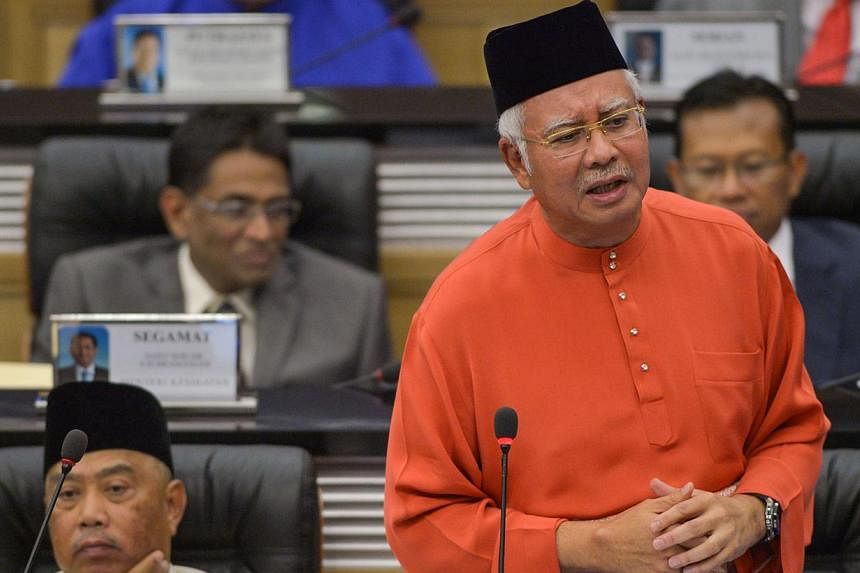KUALA LUMPUR - Malaysia will go ahead with a broad-based consumption tax next year to bring down its fiscal deficit to 3.0 per cent, moves that will likely see economic growth slow slightly to between 5.0-6.0 percent.
The government will dish cash handouts to mitigate an expected inflation rate of 4.0-5.0 per cent caused by the goods and services tax (GST), but analysts say the shiftto indirect taxes is a "long-term investment" into the country's economic and fiscal health.
"Consolidating the fiscal deficit is a moral responsibility of our generation. We do not want future Malaysians to inherit a country burdened with government debt. What is good for the economy is also good for the people," Prime Minister Najib Razak said when presenting the budget Friday evening.
Datuk Seri Najib, in his role as the finance minister, announced that the 6.0 per cent GST rate to take effect in April will bring in an extra RM5.6 billion (S$2.2 billion) in revenue after replacing the sales and service tax. But measures to offset its inflationary impact means the government will only make a net gain of RM690 million.
The government will reduce corporate income tax by 1.0 percentage point beginning 2016, and cut personal income tax by 1.0 to 3.0 points.
It said 300,000 households with a monthly income of under RM4,000 will be exempted from paying income taxes. The government also offered savings of at least 5.3 per cent to those currently in the highest tax bracket.
"We are seeing the shift of reliance from direct to indirect tax. Revenue from direct taxes is vulnerable to external factors whereas GST is more internal, so revenue stream is consistent. It's an investment for the future," Mr Alan Tan, chief economist for Affin Hwang told The Straits Times.
Mr Najib also said the deficit is set to hit the targeted 3.5 per cent this year, down from 3.9 per cent in 2013.
His administration will spend RM274 billion - with RM50.5 in development expenditure - against RM235 billion in revenue, according to the report.
Despite healthy economic growth of 6.3 per cent in the first half of 2014, the combination of subsidy cuts and the GST is expected to push inflation up to 4.0 per cent next year, sparking fears of a stalling economy and unmanageable living costs.
Affin Hwang estimates economic growth to moderate to 5.3 per cent next year due to global headwinds.
Malaysia's budget went into deficit during the Asian financial crisis in 1997. Three prime ministers later, the government is still grappling to steer spending back into the black, but hopes to do so by 2020.

